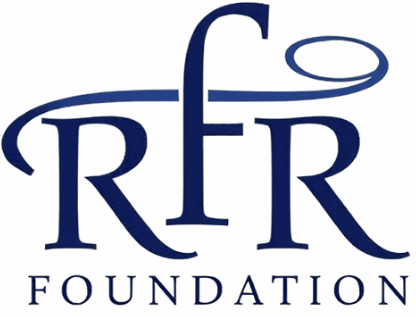Plumbing is one of the most essential skilled trades in South Africa, serving both residential and commercial sectors. With growing urbanization and infrastructural development, the demand for qualified plumbers is steadily increasing. This article explores the career prospects, salary expectations, job requirements, and opportunities for plumbers in South Africa.
Overview of Plumber Jobs in South Africa
Plumbers are responsible for installing, maintaining, and repairing water supply systems, drainage systems, and heating systems. They work in homes, factories, offices, and construction sites. In South Africa, plumbing is recognized as a critical skill, and skilled plumbers are often in high demand.
Plumber jobs can be categorized into several types:
- Residential Plumbers: Work in homes, installing and repairing water systems, sinks, toilets, and pipelines.
- Commercial Plumbers: Handle plumbing for office buildings, schools, hospitals, and other large structures.
- Industrial Plumbers: Specialize in factories, plants, and large-scale water systems, often requiring technical expertise.
- Maintenance Plumbers: Focus on preventive maintenance and quick repairs to avoid major system failures.
Overview Table
| Aspect | Details |
|---|---|
| Job Types | Residential, Commercial, Industrial, Maintenance |
| Required Education | High School + Technical Training |
| Average Salary Range | ZAR 8,000 – 35,000 per month |
| Skills Needed | Problem-solving, Technical Knowledge, Dexterity |
| Work Environment | Indoor/Outdoor, Physically Demanding, Safety-Oriented |
| Career Growth | Specialization, Self-Employment, Green Plumbing |
Required Qualifications and Skills
To pursue a career as a plumber in South Africa, candidates typically need the following:
- Educational Background: A high school diploma or equivalent is usually required. Technical training or vocational courses in plumbing are highly recommended.
- Apprenticeship: Most plumbers complete a 2–4 year apprenticeship under a licensed plumber to gain hands-on experience.
- Certification: Registration with the relevant South African authorities, such as the Department of Labour, is required for certain plumbing tasks.
- Skills Needed: Problem-solving, technical knowledge, manual dexterity, and the ability to work under pressure.
Salary and Earnings
Plumbing is a well-compensated trade in South Africa, especially for experienced professionals. Salaries vary based on location, experience, and type of employment.
| Job Type | Entry-Level Monthly Salary | Mid-Level Monthly Salary | Experienced Monthly Salary |
|---|---|---|---|
| Residential Plumber | ZAR 8,000 – 10,000 | ZAR 12,000 – 15,000 | ZAR 18,000 – 25,000 |
| Commercial Plumber | ZAR 10,000 – 12,000 | ZAR 15,000 – 20,000 | ZAR 22,000 – 30,000 |
| Industrial Plumber | ZAR 12,000 – 15,000 | ZAR 20,000 – 25,000 | ZAR 28,000 – 35,000 |
| Maintenance Plumber | ZAR 8,500 – 11,000 | ZAR 13,000 – 18,000 | ZAR 20,000 – 28,000 |
The salary also depends on whether a plumber is self-employed or working for a company. Self-employed plumbers may earn more by taking on multiple contracts, though they are responsible for their tools and transportation costs.
Work Environment
Plumbers in South Africa often work in physically demanding conditions. They may need to work outdoors, in confined spaces, or at heights. Safety is critical, so adherence to safety regulations and wearing protective gear is mandatory.
The working hours are generally full-time, but emergency repairs may require overtime or weekend work. Seasonal demand can also affect workloads, particularly during rainy seasons when plumbing issues rise.
Job Prospects and Opportunities
South Africa is experiencing a shortage of skilled plumbers, which creates ample employment opportunities. Urban expansion, new housing projects, and commercial infrastructure developments are major drivers of demand.
Some emerging opportunities include:
- Green Plumbing: Installation of water-saving systems and eco-friendly plumbing solutions.
- Maintenance Contracts: Long-term service agreements with residential and commercial clients.
- Self-Employment: Running your own plumbing business or contracting services to multiple clients.
Plumbers who pursue continuous training, certifications, and specialization in areas like industrial or eco-friendly plumbing have higher earning potential and job security.
Tips for Aspiring Plumbers
- Complete a recognized apprenticeship to gain practical experience.
- Stay updated with plumbing regulations and safety standards.
- Invest in quality tools and maintain them regularly.
- Network with other professionals to find job opportunities.
- Consider self-employment after gaining sufficient experience.
Conclusion
Plumbing is a reliable and rewarding career choice in South Africa. With competitive salaries, steady demand, and opportunities for growth, it is an ideal option for individuals seeking skilled trades. Whether you aim to work in residential, commercial, or industrial sectors, gaining experience, certifications, and specialized skills will ensure a successful career as a plumber in South Africa.
Frequently Asked Questions (FAQs)
Q1: What is the average salary of a plumber in South Africa?
A1: The average monthly salary ranges from ZAR 8,000 to ZAR 35,000 depending on experience and specialization.
Q2: Do I need a certification to work as a plumber in South Africa?
A2: Yes, certification or registration is required for certain plumbing tasks, especially in commercial and industrial sectors.
Q3: Can I start my own plumbing business in South Africa?
A3: Yes, experienced plumbers can become self-employed and manage multiple contracts for higher earnings.
